Chris Armstrong, PhD was first introduced to Myalgic Encephalomyelitis/Chronic Fatigue Syndrome (ME/CFS) through research into metabolomics at the University of Melbourne, Australia. As he delved deeper into his work, he discovered its connection to ME/CFS patients, and empathized so much with their plight – and the lack of resources, funding, and research available to both patients and clinicians – that he made it his mission to continue research in this field in the hope of finding a cure. Since publishing his first ME/CFS metabolomics study in 2015, he has continued research into the disease, spurred on by patients whose stories have moved him. As the Open Medicine Foundation’s Science Liaison, Chris works on collaborative studies with their partner organizations and helps to translate scientific language for the public. He is also a Visiting Scholar at Stanford University. Key links mentioned in this episode: - Open Medicine Foundation Tune in as Chris shares... - how he got involved in ME/CFS research - his main area of expertise: metabolomics - that ME/CFS outbreaks can be traced back as far as the mid-19thC, with symptoms commonly related to significant concerns with fatigue, sleep, pain, brain fog, and a 50% loss of general function - a description of PEM – post-exertional malaise – which is the main component of ME/CFS - that there are up to 50 symptoms associated with ME/CFS, but the main five are: PEM, fatigue, unrefreshing sleep, cognitive impairment, and pain - that ME/CFS is highly comorbid with fibromyalgia and other invisible illnesses - that ME/CFS was originally described as a flu- or polio-like illness; and was first properly explained by the Ramsay definition and given the moniker of “Myalgic Encephalomyelitis” - that patients need to have ME/CFS for 6+ months in order to receive a diagnosis one of the major schools of thought with regard to ME/CFS: that it stems from a dysfunction of stress response in the body; it’s possible, however, that bacteria and other pathogens may also play a role in onset - that 1 in 200-300 people has ME/CFS - that ME/CFS is NOT categorized as a rare disease; but it’s treated by the medical community as such – creating stigma through lack of research and understanding that ME/CFS has been commonly misdiagnosed as a form of hysteria – both in the past and in the present - that very few clinicians dig in deep enough with their patients in order to give them an ME/CFS diagnosis – but that burden is not just on doctors, as diagnostics and treatment guidelines need to be standardized in order to support their work that the Open Medicine Foundation was built to provide effective treatments for ME/CFS patients - that meeting patients has inspired him in his work, even from the very beginning - the desperate need for funding for continued research into ME/CFS - the politics of funding medical research - that ME/CFS is often considered to be more a psychological than a physiological illness - that the National Institutes of Health (NIH) has been more receptive than some Aussie governing bodies when it comes to research into ME/CFS - the biggest bright spot in ME/CFS: the momentum of funding for research - OMF’s collaborative research initiatives with Harvard, Stanford, and others - that ME/CFS could be a collection of several diseases, and not one disease in and of itself - the importance of specifics in diagnostics - why medicine needs to be patient-centered - the importance of pacing in order to avoid a crash related to PEM
Uninvisible Pod with Lauren Freedman
An award-winning podcast about invisible conditions and chronic invisible illness, featuring interviews with survivors, their loved ones, advocates, and experts in varied healing modalities, from medical to holistic. Hosted by Lauren Freedman, a health coach and patient advocate, who lives with Hashimoto’s disease and sleep disorders, Uninvisible uncovers real stories of survival and humanity – complete with laughter. In truth and with candor, we offer solutions – and challenge the world to change.
An award-winning podcast about invisible conditions and chronic invisible illness, featuring interviews with survivors, their loved ones, advocates, and experts in varied healing modalities, from medical to holistic. Hosted by Lauren Freedman, a health coach and patient advocate, who lives with Hashimoto’s disease and sleep disorders, Uninvisible uncovers real stories of survival and humanity – complete with laughter. In truth and with candor, we offer solutions – and challenge the world to change.Listen on
Substack App
Spotify
RSS Feed
Recent Episodes



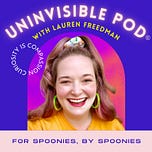


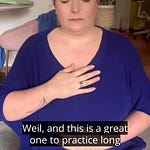


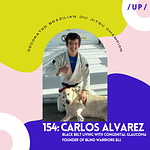
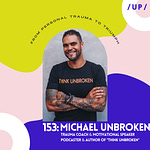

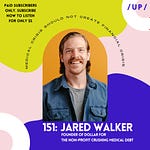

Share this post